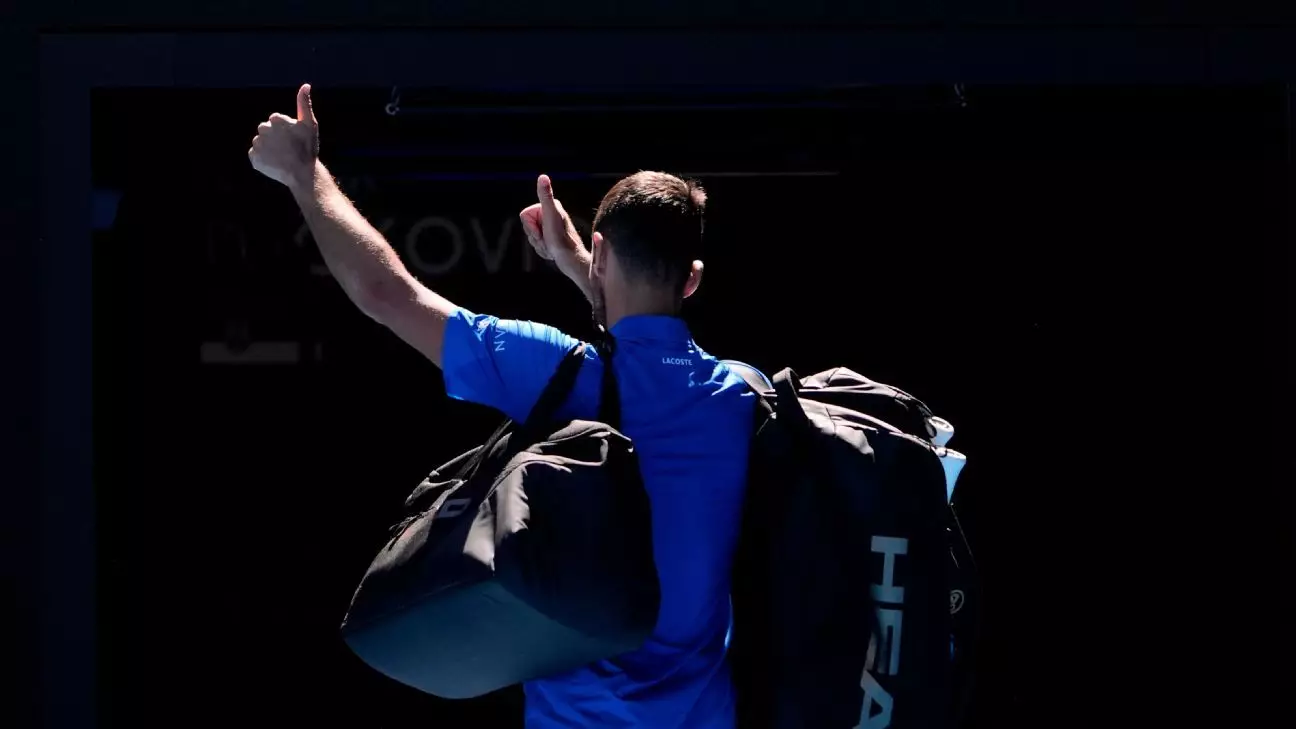In a dramatic turn of events at this year’s Australian Open, tennis legend Novak Djokovic faced an unfortunate and early exit from the tournament during the semi-finals against Alexander Zverev. This match not only showcased Djokovic’s fighting spirit but also illuminated the harsh realities athletes confront when injury strikes. After an intense first set that stretched into a taxing 81 minutes and ended in a tiebreak, Djokovic had to retire, giving Zverev the victory—and with it, a place in the finals.
The match began with the heavy anticipation characteristic of a Djokovic showdown, especially given his pursuit of an eleventh title at Melbourne Park. However, whispers of his physical struggles emerged early on, as visible strapping adorned his left thigh. The world watched, concerned yet hopeful, anxious to see whether the Serbian powerhouse could overcome the obstacles of his recent muscle tear—an injury sustained during his quarterfinal match against world No. 3, Carlos Alcaraz. Djokovic’s ability to compete on tennis’s grandest stages has often been marred by injury, raising questions about the sustainability of his elite career.
As Djokovic gingerly approached the net to acknowledge Zverev after his retirement, a mix of emotions flooded the Rod Laver Arena. While fans had come to witness an epic battle, they were left grappling with disappointment. Boos echoed through the venue—a reaction that stunned Zverev, who quickly came to his rival’s defense. “Please, guys, don’t boo a player when he goes out with injury,” he urged the crowd, reminding them that Djokovic has conquered great adversity before, even under dire physical conditions.
Djokovic’s post-match comments reflected both determination and dejection. He explained his struggle with managing the pain during the match, indicating that despite efforts to push through with medications and the support of physiotherapists, the worsening discomfort made it impossible to continue. His words showed a fierce competitor who understands both the mental and physical toll of the sport.
The incident feeds into a broader narrative concerning athletes and the risks they take to pursue greatness. Djokovic acknowledged the grim statistics surrounding his injuries over the past few years, revealing his fear of what the future holds. “I don’t know what exactly is the reason,” he confessed, illuminating the relentless pressure and sacrifices athletes face, often behind the scenes. It’s a reminder that their battles extend beyond the court and into the realm of personal health and longevity.
For Djokovic, this isn’t the first time injuries have hindered his path in major tournaments. Notably, last year’s French Open saw him pull out of the quarterfinals due to a knee injury, a pattern that raises red flags about the sustainability of his pursuits as he pushes for more Grand Slam titles.
As Djokovic contemplates his next steps, the future remains uncertain. He plans to consult with his medical team upon returning to Europe, seeking answers and strategies for a swift recovery. Competing in the upcoming Doha tournament hinges upon how quickly he can regain his fitness, leaving fans and analysts wondering about the implications for his career trajectory.
With sportsmanship at the forefront, Zverev’s respectful acknowledgment of Djokovic’s legacy serves as a poignant reminder of the bond athletes share, underpinned by mutual respect and understanding. While Djokovic’s journey at the Australian Open ended prematurely, this episode reignites discussions about athlete health, the mental fortitude required to compete at high levels, and the relentless pursuit of excellence.
Through setbacks come opportunities for growth and learning, and one can only hope that Djokovic, with his unyielding spirit, will chart a path back to triumph in the face of adversity. As he gathers strength from this setback, the tennis world watches, waiting for the next chapter in the storied career of one of its greatest icons.


Leave a Reply